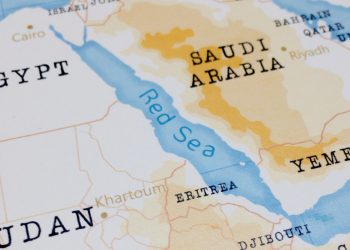The UAE’s position is seen as a key import and re-export hub
 The UAE’s position as a key import and re-export hub, has seen its ports in Dubai, Abu Dhabi, Sharjah, Fujairah and others handling increasing amounts of container traffic, as demand for goods and services throughout the region rises. According to recent estimates, the amount of container traffic handled by UAE ports in 2010 was 11.6 million TEU, up four per cent over the previous year. The performance of the region in the second half of 2010 saw a return to peak levels previously seen in 2008 with 6.1 million TEU handled in the six month period.
The UAE’s position as a key import and re-export hub, has seen its ports in Dubai, Abu Dhabi, Sharjah, Fujairah and others handling increasing amounts of container traffic, as demand for goods and services throughout the region rises. According to recent estimates, the amount of container traffic handled by UAE ports in 2010 was 11.6 million TEU, up four per cent over the previous year. The performance of the region in the second half of 2010 saw a return to peak levels previously seen in 2008 with 6.1 million TEU handled in the six month period.
Large-scale developments underway in the region, such as the mega terminal project in Jeddah, which will double existing capacity to 15 million containers annually by 2020, are set to transform the current scenario in the near future. Another mega-development that is sparking tremendous interest regionally is the ongoing construction of the multi-billion dollar world-class deep water port at Meesaid in Qatar.
Increasing globalisation and international trade is spurring the demand for greater transport, logistics and communications facilities the world over. This has fuelled the drive to create improved facilities such as ports, air terminals, road and rail transport networks around the globe, which in turn drives growth in global economies.
The majority of goods traded worldwide are transported by sea, with national and regional authorities laying out plans and implementing expansion projects to improve access and promote the free movement of goods and services. This has led to a surge in demand for container terminals and services worldwide.
Recent research by Global Industry Analysts indicate that the world maritime containerisation market is set to reach an impressive 731.88 million TEUs (Twenty-foot equivalent units) by 2017.
Burgeoning seaborne trade in goods and services have played a key role in building the high-growth economies of the Middle East and interest in the sector’s trends and developments are growing according to the organisers of the region’s only dedicated trade platform for logistics, supply chain and materials handling – Materials Handling Middle East 2011. “Traditionally the hub for trade since the days of the spice caravans, trade, transportation and commerce continue to play a fundamental role in underpinning the region’s economic transformation,” said Ahmed Pauwels, CEO of Epoc Messe Frankfurt, organiser of Materials Handling Middle East 2011. “Growing levels of prosperity in the local communities has also led to a surge in demand for goods and services, leading to a surge in cargo and container traffic to meet this demand.”
“Materials Handling Middle East trade fair and conference is an event dedicated to the further growth and development of this vital sector. Here, leading international players will congregate under one roof to discuss and evaluate the latest state of play in the industry. Key trends in the field will be examined as well as how these could impact the flow of commerce and trade in the region,” Pauwels said.
Stewart Arbuckle, Managing Director, LOC 8 FZ LLC, said: “It looks like there will be a move by companies to use increased technological solutions within their supply chain management strategies. The latest reports show that the containerisation sector is rapidly developing. This in turn will lead to developments within the entire supply chain function and for companies to stay ahead of the game they will need to make their overall operations more proficient and cost-effective.”
Source: Khaleej Times






























































